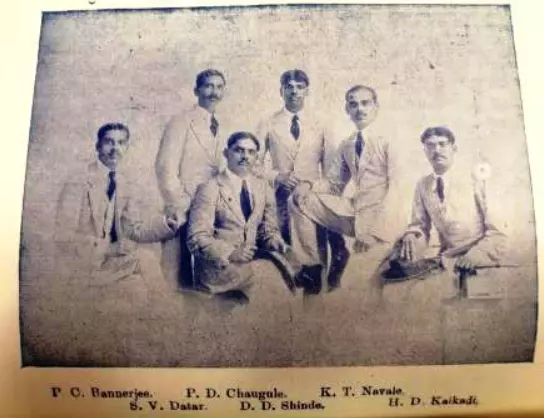Olympics
From Deccan Gymkhana to Antwerp; how Indians made debut at Olympics
The 1920 Antwerp Olympics witnessed the arrival of Indians' first official contingent at the Games following a conscious and combined effort by the Indians.

A first-ever contingent represented India at the Antwerp Olympic Games in 1920. (FILE PHOTO: British Library)
The year was 1920. The Olympic Games were set to be held in Antwerp, Belgium, marking the first global gathering of athletes since 1912. For India, however, the Antwerp Games held a special significance.
20 years after Norman Pritchard's heroics at the 1900 Paris Games, the world was about to witness the arrival of Indians' first official contingent at the world's grandest sporting spectacle. This marked a turning point, a conscious and combined effort by the Indians to participate on the global sporting stage.
The birth of an Olympic dream
The driving force behind this historic moment was Dorabji Tata, a prominent Indian businessman and a distinguished sportsperson himself.
Recognizing the potential of Indian athletes, Tata took the initiative to form an 'Indian Olympic Association' and scouted athletes who could participate in the 1920 Olympics. He secured the backing of then-Bombay governor George Lloyd, and together, they organised selection trials at Pune's Deccan Gymkhana.
"Even as he watched these peasant athletes in Pune, he was filled with a desire to see an Indian team participate in the Olympics. At his urging Sir Lloyd George, the governor of Mumbai, took up the cudgels on behalf of Indian athletics and obtained affiliation for India with the international Olympic body," quotes the book - Tata and the Olympics
In April 1920, the committee selected a five-member Indian contingent for the Antwerp Olympics; each having a unique story and diverse background.
Purma Bannerjee, a sprinter from West Bengal, became the first Indian flag-bearer at the Games. Phadeppa Chaugule, who was once a wrestler from Belgaum, turned to running and became a marathon specialist. Sadashiv Datar, from Satara, Maharashtra, joined the team for the marathon.
The wrestling contingent included Kumar Navale, a middleweight wrestler from Bombay, and Dinkarrao Shinde, a featherweight wrestler from Kolhapur.
One additional team member, H. D. Kaikadi, was listed but there are no records of his participation in the Games.
A Long Journey to Antwerp
Following their selection, the team embarked on a long journey to Antwerp, Belgium. They set sail from Bombay (present-day Mumbai) on June 5, 1920, aboard the SS Mantua, but their journey wasn't a direct one.
For six weeks, they travelled to Tilbury in England for a crucial training session under the guidance of English coach H. Parry at the iconic Stamford Bridge stadium in London. After this period of preparation, they set off for Antwerp, ready to make their mark on the Olympic stage.
A spirited performance
The 1920 Antwerp Olympics threw a number of challenges at the Indian contingent. Limited resources and experience compared to their competitors were some of the many hurdles they had to overcome. Yet, the team displayed remarkable spirit and determination.
Purma Bannerjee, though eliminated in the heats of the 100m and 400m races, held the honour of being the first Indian flag-bearer at the Olympics.
Phadeppa Chaugule, despite not finishing 10,000m, earned a commendable 19th place finish in the marathon with a timing of 50 minutes 45.2 seconds, earning a "diploma of merit."
Unfortunately, Sadashiv Datar could not finish the marathon.
In wrestling, Kumar Navale fell short in the middleweight category, losing in the Round of 16 to Charles Johnson of the USA.
However, the brightest performance came from Dinkarrao Shinde as he wrote his name in history by becoming the first Indian to win an Olympic bout, defeating British opponent Henry Inman in the featherweight category. While he didn't secure a medal, Shinde's fourth-place finish was a great achievement for India.
The 1920 Indian Olympic contingent may not have returned with medals, but the torch they lit continues to burn brightly, illuminating the path for future generations of Indian athletes to conquer the Olympic stage in Paris and beyond.
